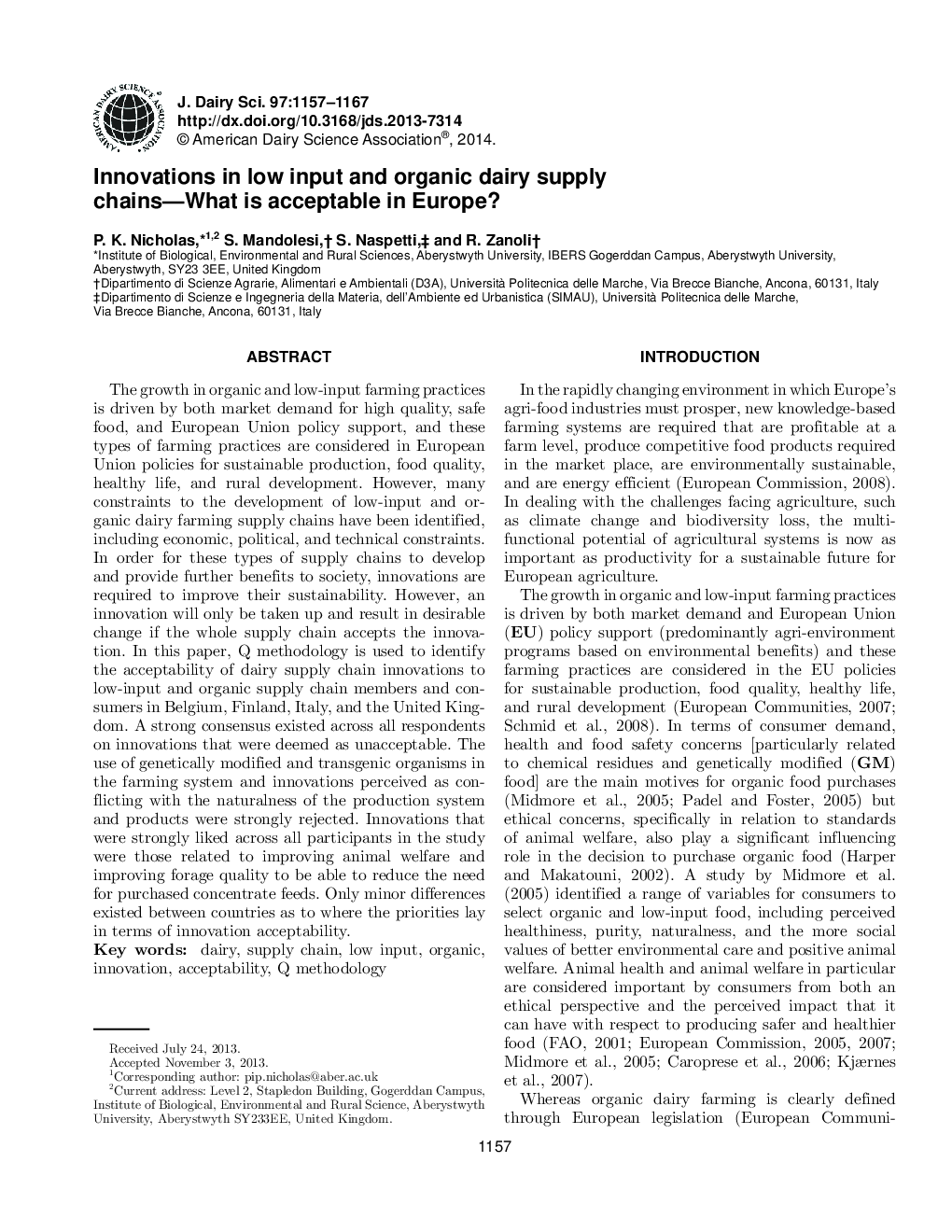| Article ID | Journal | Published Year | Pages | File Type |
|---|---|---|---|---|
| 10977091 | Journal of Dairy Science | 2014 | 11 Pages |
Abstract
The growth in organic and low-input farming practices is driven by both market demand for high quality, safe food, and European Union policy support, and these types of farming practices are considered in European Union policies for sustainable production, food quality, healthy life, and rural development. However, many constraints to the development of low-input and organic dairy farming supply chains have been identified, including economic, political, and technical constraints. In order for these types of supply chains to develop and provide further benefits to society, innovations are required to improve their sustainability. However, an innovation will only be taken up and result in desirable change if the whole supply chain accepts the innovation. In this paper, Q methodology is used to identify the acceptability of dairy supply chain innovations to low-input and organic supply chain members and consumers in Belgium, Finland, Italy, and the United Kingdom. A strong consensus existed across all respondents on innovations that were deemed as unacceptable. The use of genetically modified and transgenic organisms in the farming system and innovations perceived as conflicting with the naturalness of the production system and products were strongly rejected. Innovations that were strongly liked across all participants in the study were those related to improving animal welfare and improving forage quality to be able to reduce the need for purchased concentrate feeds. Only minor differences existed between countries as to where the priorities lay in terms of innovation acceptability.
Related Topics
Life Sciences
Agricultural and Biological Sciences
Animal Science and Zoology
Authors
P.K. Nicholas, S. Mandolesi, S. Naspetti, R. Zanoli,
